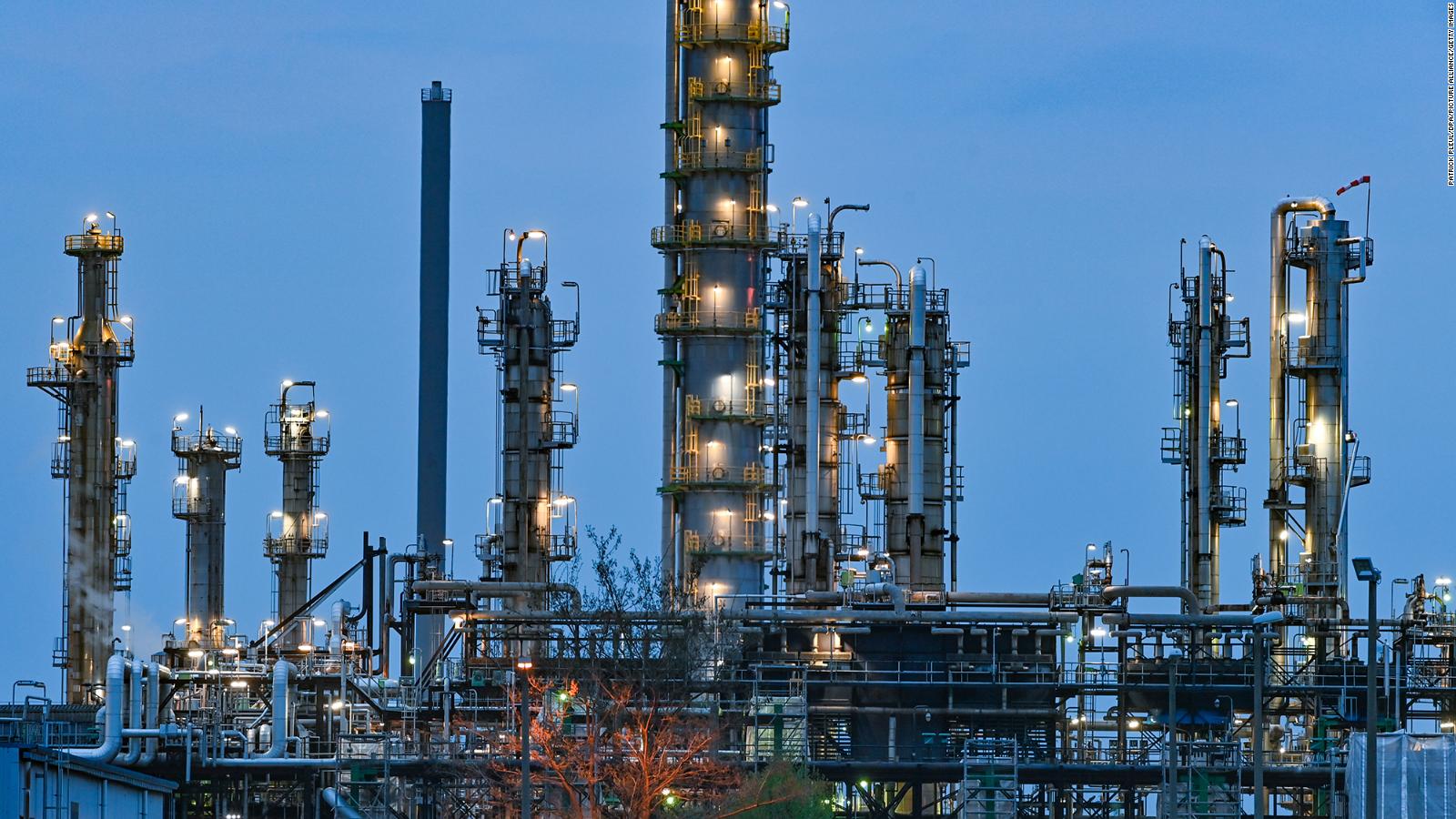They warn about a serious energy crisis due to Russian oil 0:50
New York (CNN Business) --
The world is grappling with gravity-defying energy price hikes, from gasoline and natural gas to coal.
Some fear this is just the beginning.
Current and former energy sector officials tell CNN they are concerned that Russia's invasion of Ukraine, following years of underinvestment in the energy sector, has plunged the world into a crisis that will rival or even surpass the world's oil shocks. 1970s and early 80s.
Unlike those infamous episodes, this one is not limited to oil.
"Now we have an oil crisis, a gas crisis and an electricity crisis at the same time," Fatih Birol, head of the International Energy Agency (EIA) watchdog committee, said in a statement. an interview published this week in Der Spiegel.
"This energy crisis is much bigger than the oil crises of the 1970s and 1980s. And it will probably last longer."
They warn about a serious energy crisis due to Russian oil 0:50
The world economy has largely been able to withstand rising energy prices so far.
But prices could continue to rise to unsustainable levels as Europe tries to divest itself of Russian oil and potentially gas.
The supply shortage could lead to some tough decisions in Europe, including rationing.
Joe McMonigle, secretary general of the International Energy Forum, said he agreed with this dismal forecast from the EIA.
advertising
"We have a serious problem around the world that I think policymakers are waking up to. It's kind of a perfect storm," McMonigle, whose group serves as a broker between energy-producing and energy-consuming countries, said in a phone interview with CNN.
The scope of that perfect storm - underinvestment, strong demand and supply disruptions due to war - will have far-reaching consequences, potentially threatening the economic recovery from covid-19, exacerbating inflation, fueling unrest and undermine efforts to save the planet from global warming.
Birol warned of delays in the supply of gasoline and diesel, especially in Europe, as well as a rationing of natural gas next winter in Europe.
"This is a crisis that the world is unfortunately not prepared for," said Robert McNally, who was one of former President George W. Bush's top energy advisers.
An expert warns about the energy situation ahead of winter
Not only are energy prices very high, but the reliability of the electricity grid is threatened by extreme temperatures and severe drought.
A US power grid regulator warned last month that parts of the country could experience power shortages and even blackouts this summer.
"Our fears have been confirmed"
Former Obama energy adviser Jason Bordoff and Harvard University professor Meghan O'Sullivan wrote an article in The Economist in late March warning that the world was on the cusp of "what could become the worst energy crisis since the 1970s.
"Since we wrote it, our fears have been confirmed," Bordoff, co-founding dean of the Columbia Climate School, told CNN.
Of course, there are key differences between today and the 1970s. Prices haven't skyrocketed as much as then, and lawmakers haven't resorted to extreme measures like price controls.
"If we were to resort to price controls and price caps, we could have a shortage," McNally said.
When the war began, the West tried to avoid attacking Russia's energy supplies directly because it was simply too important to world markets.
Russia is not only the world's largest oil exporter, but also the largest exporter of natural gas and a major supplier of coal.
But when the brutality of the war became apparent to the world, that hands-off approach did not last, and the United States and other countries banned Russian energy imports.
Russia retaliated against Western sanctions by restricting or even stopping its shipment of natural gas to multiple European countries.
Will the union of the West hold up against Russia even if prices continue to rise?
The European Union announced this week its plans to eliminate 90% of Russian oil imports by the end of the year.
This measure has raised the expectation of further retaliation by Russia.
This tit-for-tat situation has only exacerbated supply shortages in already tight energy markets.
"We have not yet seen how far this energy crisis will go," Bordoff said.
Gasoline prices in the US have soared 52% in the past year to record highs, angering the public and contributing to the country's inflation crisis.
Prices for natural gas, a vital fuel for heating homes and powering the electricity grid, have nearly tripled in the past year in the United States.
Natural gas prices have soared further in Europe, although they are far from their worst levels.
"Putin got us there faster"
The current energy upheaval is not simply the result of the war in Ukraine.
It is also the byproduct of an investment in oil and natural gas that is running out and that requires huge sums of money just to maintain production, let alone increase it.
Investment in the oil and gas sector amounted to just $341 billion in 2021, 23% below the pre-Covid-19 crisis level of $525 billion, and well below the maximum of 2014, of US$ 700,000 million, according to the International Energy Forum.
This investment shortfall is due to a number of factors, including the drive by investors and governments to go clean energy, the uncertain future of fossil fuels, and years of weak and volatile oil prices.
"Because of the desire to reduce carbon emissions, there is much less appetite to invest in hydrocarbons. And that aggravates price volatility and makes it more difficult to solve the supply side," said Francisco Blanch, head of global raw materials at Bank of America.
Europe was already dealing with an energy crisis last year and prices for natural gas, coal and oil were high long before the first Russian tanks started rolling in Ukraine.
"We were headed for a crisis anyway. Putin just got us there faster and more abruptly," said McNally, who is now the president of the Rapidan Energy Group consulting firm.
First on CNN: Record Gas Prices Are Depressing Americans' Spending, According to JPMorgan
Scarcity and lines to get gasoline?
The 1973 oil crisis was marked by hours-long lines at gas stations, fuel shortages, and panic.
Experts say they are now concerned about fuel shortages, though they see it as a greater risk in Europe than in the United States.
"Fuel shortages are a global problem. It's going to be noticeable very soon, although maybe not in the United States," said Bank of America's Blanch.
Blanch believes this risk is lower in the United States because the country remains one of the largest oil producers on the planet and is a major exporter of energy.
Europe, by contrast, is more dependent on foreign oil and natural gas, especially from Russia.
The director of the EIA warned of the rationing of natural gas in Europe, which depends largely on Russia to obtain it.
Blanch pointed out that high natural gas prices have already caused factories to close in Europe.
"Europe is already in natural gas rationing mode," he said.
"We must proceed with caution"
Energy experts told CNN they are concerned that policymakers are mismanaging the climate crisis, focusing too much on reducing supply and not enough on reducing the global appetite for fossil fuels.
"We are not doing enough to reduce hydrocarbon demand in line with our climate goals," Bordoff said.
If we focus on just one side of the equation, we risk not only rising prices, but also social unrest and the public turning away from pro-environmental action.
"We have to be careful because if we allow the public to equate high energy prices with the energy transition, we are doomed," McMonigle said.
"We will essentially lose public support, probably permanently."
McMonigle urged governments to send signals to investors that it is not only okay to continue investing in fossil fuels, but that it is "necessary" for the global economy and the progress of the energy transition.
But even if lawmakers convince investors to increase their investments, it would take considerable time for a larger supply to occur.
OPINION |
It's time to prepare for a recession
What could end the energy crisis?
Of course, no one can say for sure how this will all play out.
And there could be surprises to ease the supply crisis.
For example, a diplomatic breakthrough that ends the war in Ukraine and allows sanctions on Russia to be lifted would be a turning point.
Birol said that other surprises that could alleviate the energy crisis are a nuclear deal by Iran, a further economic slowdown in China or an agreement by Saudi Arabia and other OPEC producers to increase oil production.
He also reiterated that governments are ready to release more emergency oil reserves.
However, even the release of US emergency stockpiles, which reached a record level, had a modest and fleeting impact on gasoline prices.
In March, the EIA also urged governments around the world to consider drastic measures to reduce oil demand, such as reducing speed limits on highways, working from home up to three days a week where possible, and Sundays without cars in cities.
And there is at least one other event that has been coming to the fore lately that would ease the energy crisis: an economic recession, or at least one deep enough to cause a collapse in demand.
Price increase Energy shortage







